In this excerpt, Chavarria talks about his history of involvement in local politics and offers his unique perspective as Major Devil in the Congo tradition and Mayor of Portobelo district. The district includes: Isla Grande, Juan Gallego, La Guaira, Puerto Lindo o Garrote, Cacique, Jose Pobre, Valle Estilla, San Antonio, Nuevo Tonosi, Portobelo, La Escucha, Buenaventura, Guanche, Mechi, Alto de la Cruz, Playa Langosta, Rio Piedra, María Chiquita, Las Mercedes y Las Merceditas.
Archives
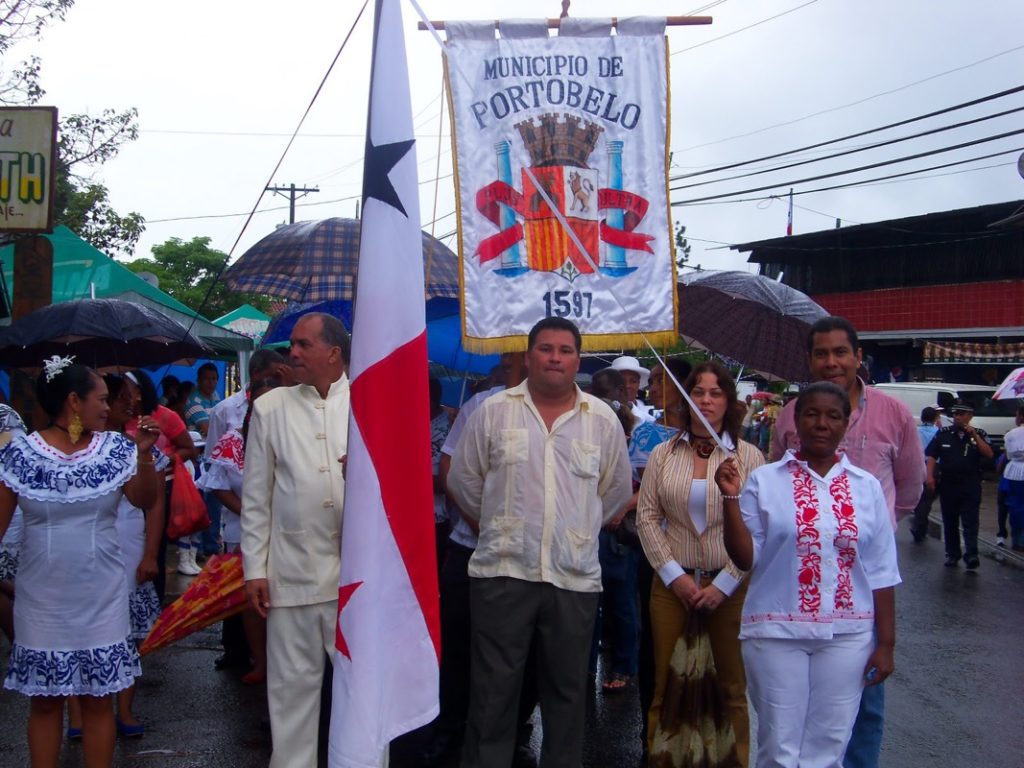
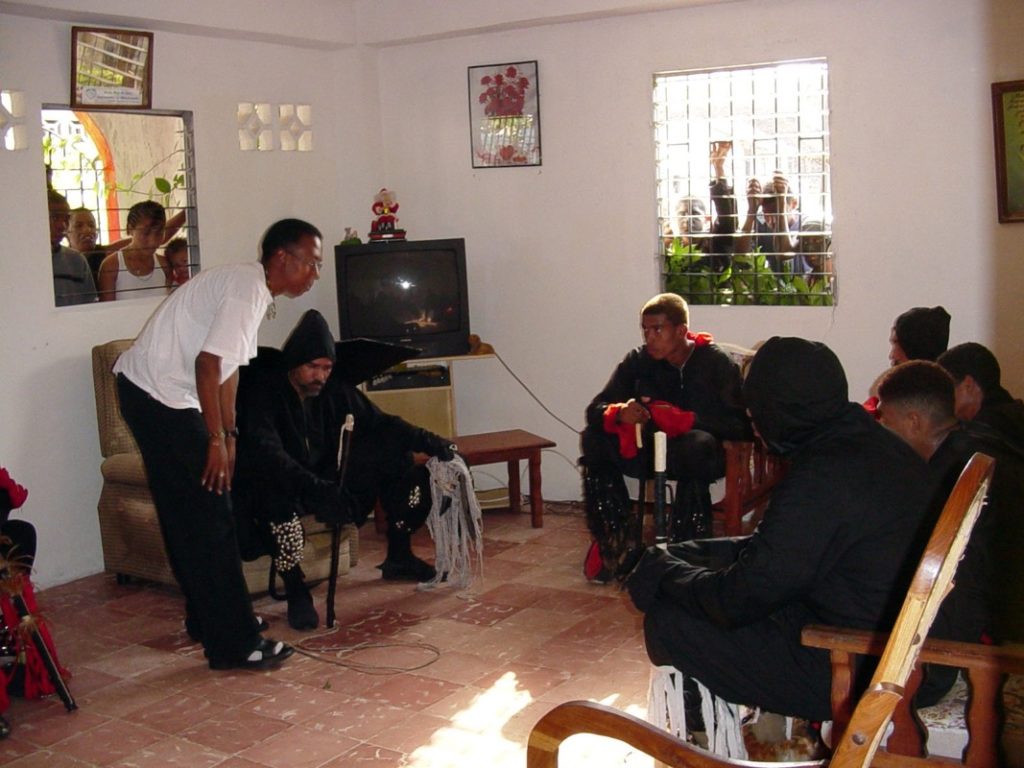
In this excerpt, Chavarría discusses the process by which he became Major Devil in the Congo tradition of Portobelo, Panama.

In this excerpt, Chavarría discusses his particular style of “Devil” embodiment within the Congo tradition and the way others perceive of his performance. He also talks about the respect devils from outside of the community give to the devil of the town they are visiting. Each visiting devil must submit to the rules of the game as practiced by the local community.
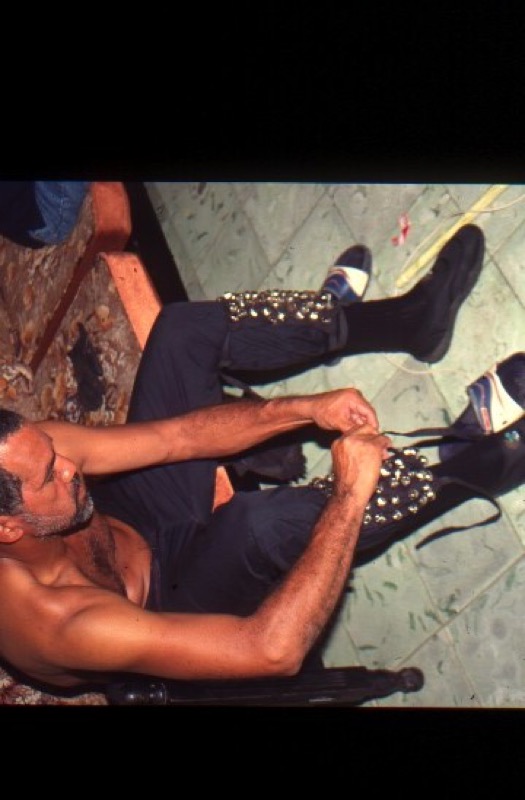
In this excerpt, Chavarría talks about his choice to play the devil role in the Congo tradition and shares his memories of how he came to play the role for the first time as a school-aged boy.
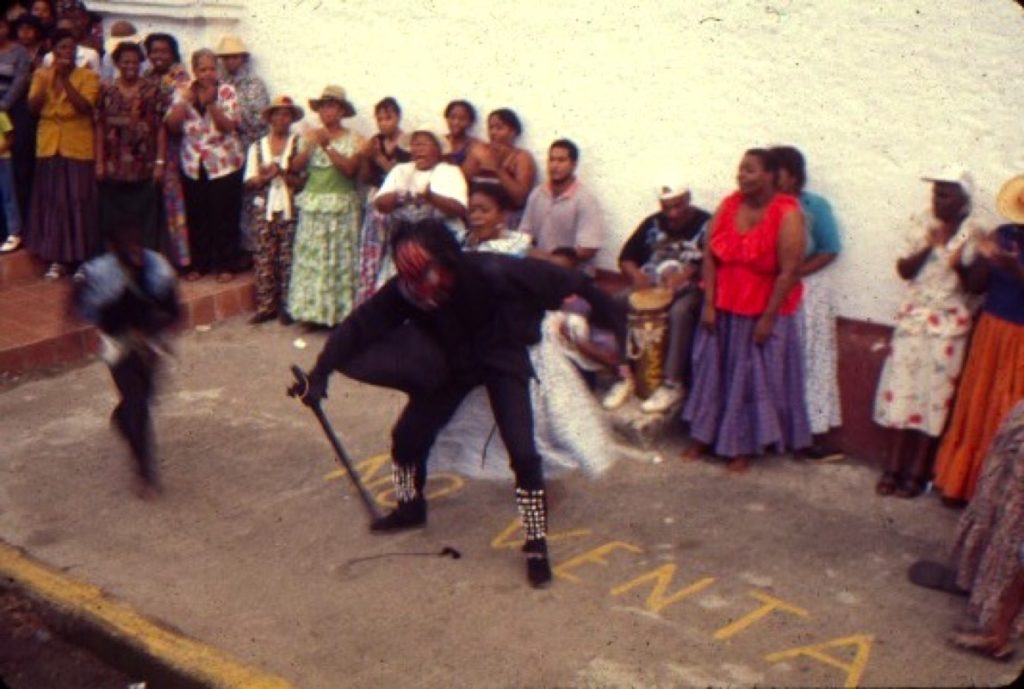
In this excerpt, Chavarría discusses the ways in which the Devil’s mask initially captured his attention and the double perspective/participant-observer position that it provides.
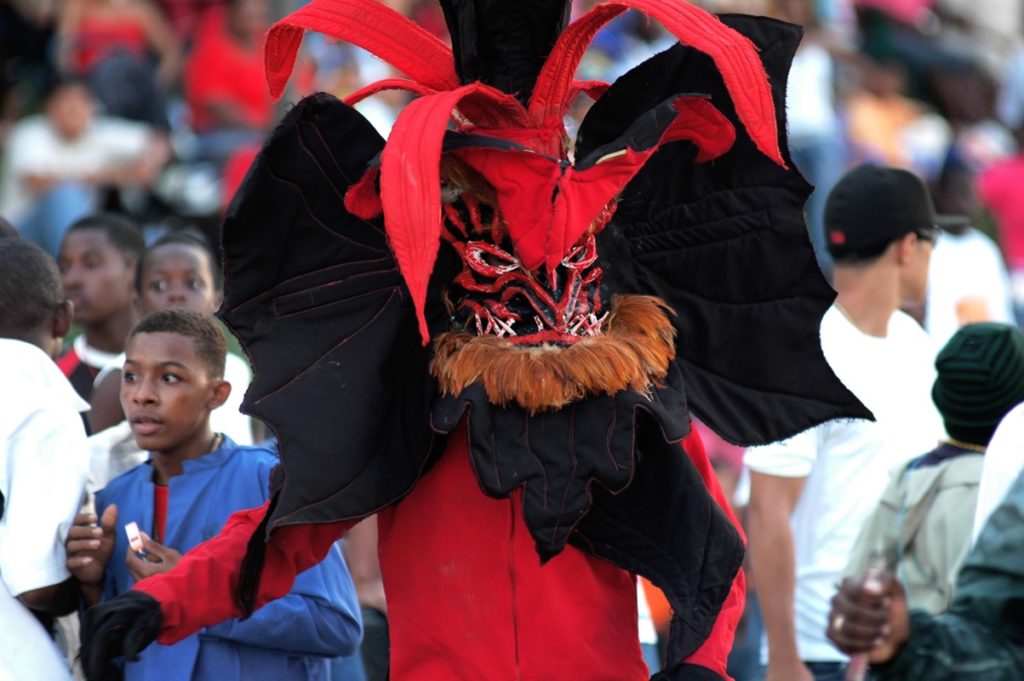
In this excerpt, Chavarría discusses the ways in which the Major Devil character has changed over his lifetime. He focuses particularly on his choice to follow his mentor’s example by wearing a smaller mask and discusses the value of smaller masks in relationship to the value of larger ones, which many younger devils choose to wear.
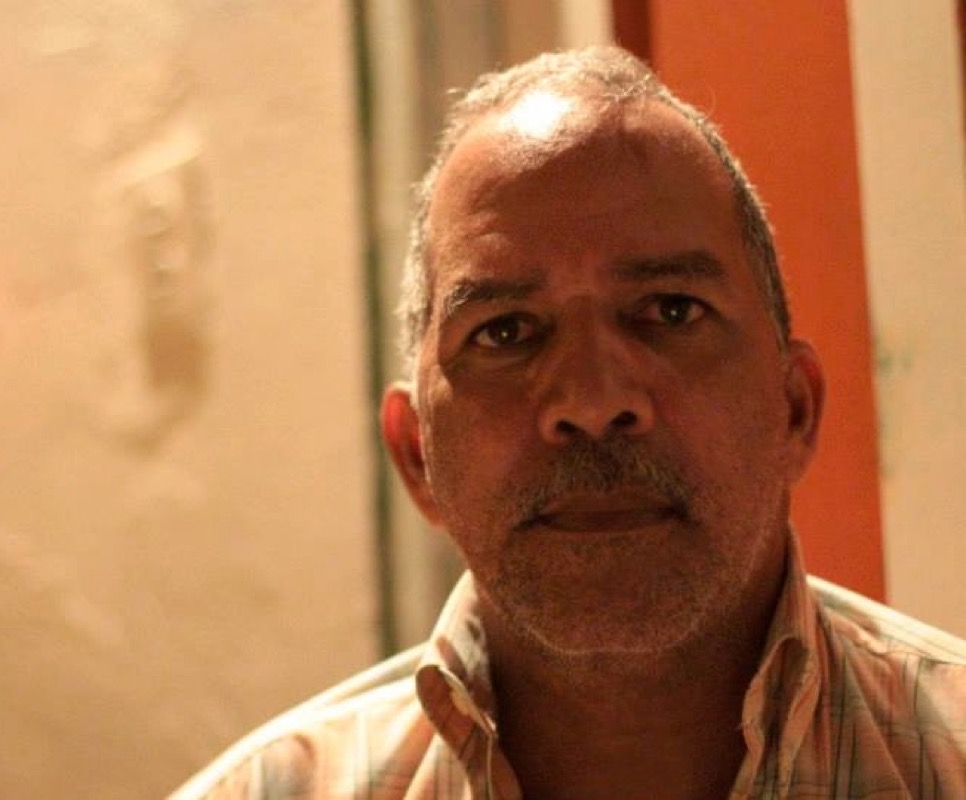
In this excerpt, Chavarría discusses how he imagines retiring as Major Devil.
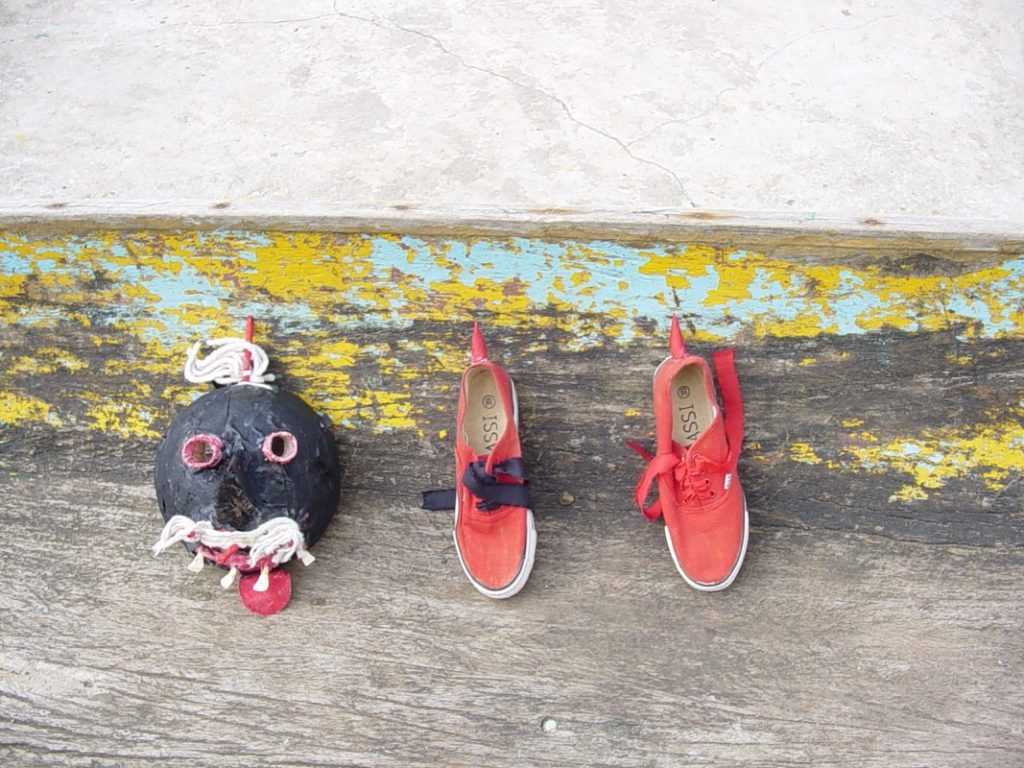
In this excerpt, Chavarría discusses his mentor Celedonio Molinar’s lasting legacy to the town and to the Congo tradition, including a charge to embrace the tradition with pride and joy.
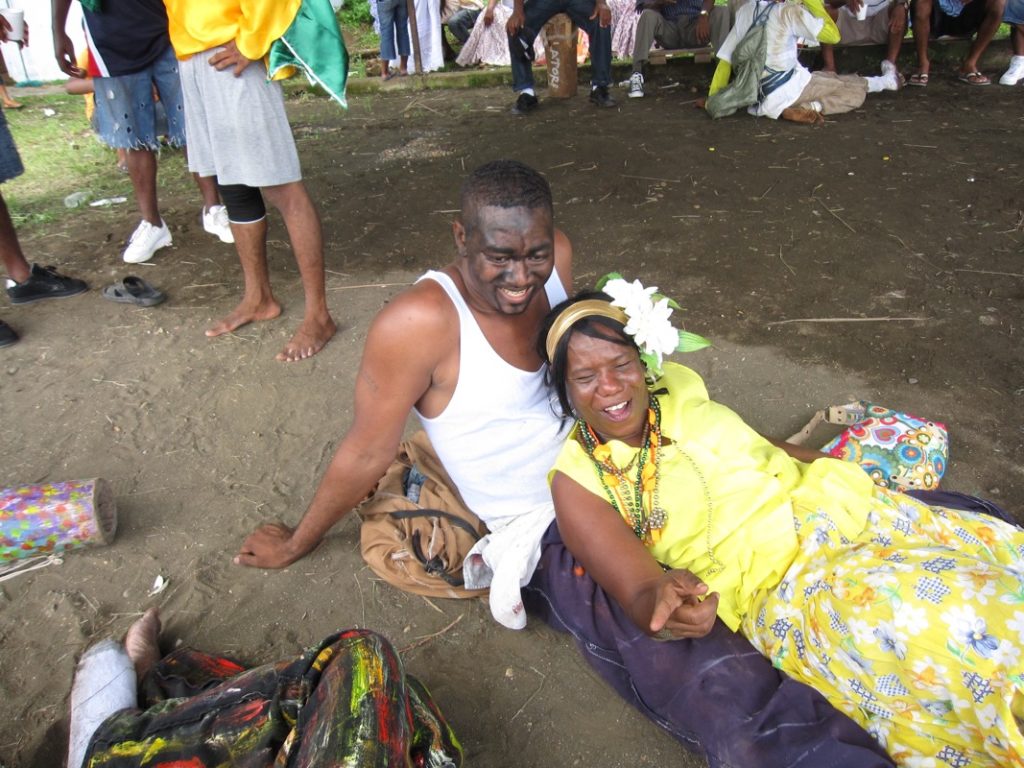
In this excerpt, Chavarría talks about the importance of the Congo tradition and Congo dance to the community’s sense of pride and self. He urges young people to maintain the power of their traditions and to stay anchored to their sense of “place” and home.
